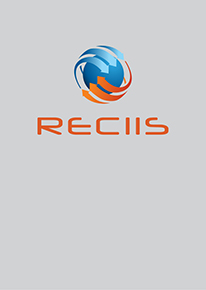Human resources in the health sector of Portuguese-speaking African Countries: identical problems, cross-sectional solutions?
DOI:
https://doi.org/10.3395/reciis.v4i1.701Keywords:
Human resources in the health sector, Portuguese-speaking African countries (PALOP), Health planning and administration, Education/qualification of health sector professionalsAbstract
This paper presents a situational analysis of the human resources in the health sector (HRH) of the five African countries where Portuguese is the official language, focusing on the quantitative aspects of the work force. The figures analyzed are: occupational and demographic composition, and distribution by level of care and by geographic zone. The paper discusses the constitution of HRH, relevant policies, and related expenditures. The methodology consisted in identifying relevant documentation about the subject. A form was used to collect data. The available data were consolidated into one single unit, so as to make comparisons possible. Each country revised and commented the data. Results showed that systems containing information on HRH were scarce, and the ratio of health professionals per inhabitant was low; HRH were distributed in a highly asymmetrical manner; the capacity to produce HRH was low and dependant on external assistance. HRH management was defective, centralized, and complied with the rules of public administration, which restricted its flexibility. The conclusion is that the problems are common and likely to be dealt with jointly through four major approaches: developing information systems, exchanging experiences that improve the performance of HRH, developing management capabilities, and strengthening the capacity to mobilize financial resources.Downloads
Published
How to Cite
Issue
Section
License
Author’s rights: The author retains unrestricted rights over his work.
Rights to reuse: Reciis adopts the Creative Commons License, CC BY-NC non-commercial attribution according to the Policy on Open Access to Knowledge by Oswaldo Cruz Foundation. With this license, access, download, copy, print, share, reuse, and distribution of articles is allowed, provided that it is for non-commercial use and with source citation, granting proper authorship credits and reference to Reciis. In such cases, no permission is required from the authors or editors.
Rights of authors’s deposit / self-archiving: The authors are encouraged to deposit the published version, along with the link of their article in Reciis, in institutional repositories.












